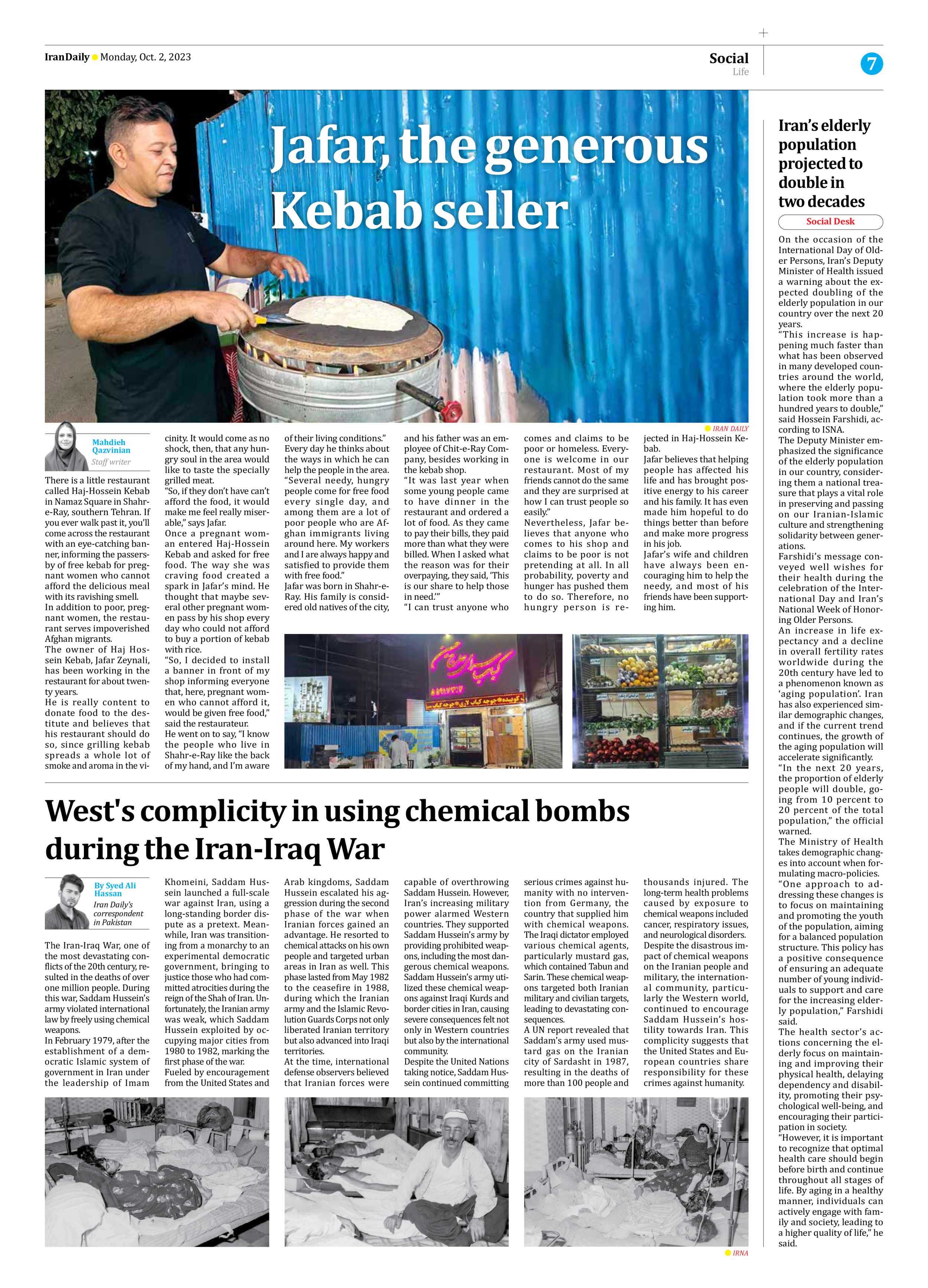
West’s complicity in using chemical bombs during the Iran-Iraq War
By Syed Ali Hassan
Iran Daily’s correspondent in Pakistan
The Iran-Iraq War, one of the most devastating conflicts of the 20th century, resulted in the deaths of over one million people. During this war, Saddam Hussein’s army violated international law by freely using chemical weapons.
In February 1979, after the establishment of a democratic Islamic system of government in Iran under the leadership of Imam Khomeini, Saddam Hussein launched a full-scale war against Iran, using a long-standing border dispute as a pretext. Meanwhile, Iran was transitioning from a monarchy to an experimental democratic government, bringing to justice those who had committed atrocities during the reign of the Shah of Iran. Unfortunately, the Iranian army was weak, which Saddam Hussein exploited by occupying major cities from 1980 to 1982, marking the first phase of the war.
Fueled by encouragement from the United States and Arab kingdoms, Saddam Hussein escalated his aggression during the second phase of the war when Iranian forces gained an advantage. He resorted to chemical attacks on his own people and targeted urban areas in Iran as well. This phase lasted from May 1982 to the ceasefire in 1988, during which the Iranian army and the Islamic Revolution Guards Corps not only liberated Iranian territory but also advanced into Iraqi territories.
At the time, international defense observers believed that Iranian forces were capable of overthrowing Saddam Hussein. However, Iran’s increasing military power alarmed Western countries. They supported Saddam Hussein’s army by providing prohibited weapons, including the most dangerous chemical weapons. Saddam Hussein’s army utilized these chemical weapons against Iraqi Kurds and border cities in Iran, causing severe consequences felt not only in Western countries but also by the international community.
Despite the United Nations taking notice, Saddam Hussein continued committing serious crimes against humanity with no intervention from Germany, the country that supplied him with chemical weapons. The Iraqi dictator employed various chemical agents, particularly mustard gas, which contained Tabun and Sarin. These chemical weapons targeted both Iranian military and civilian targets, leading to devastating consequences.
A UN report revealed that Saddam’s army used mustard gas on the Iranian city of Sardasht in 1987, resulting in the deaths of more than 100 people and thousands injured. The long-term health problems caused by exposure to chemical weapons included cancer, respiratory issues, and neurological disorders.
Despite the disastrous impact of chemical weapons on the Iranian people and military, the international community, particularly the Western world, continued to encourage Saddam Hussein’s hostility towards Iran. This complicity suggests that the United States and European countries share responsibility for these crimes against humanity.







